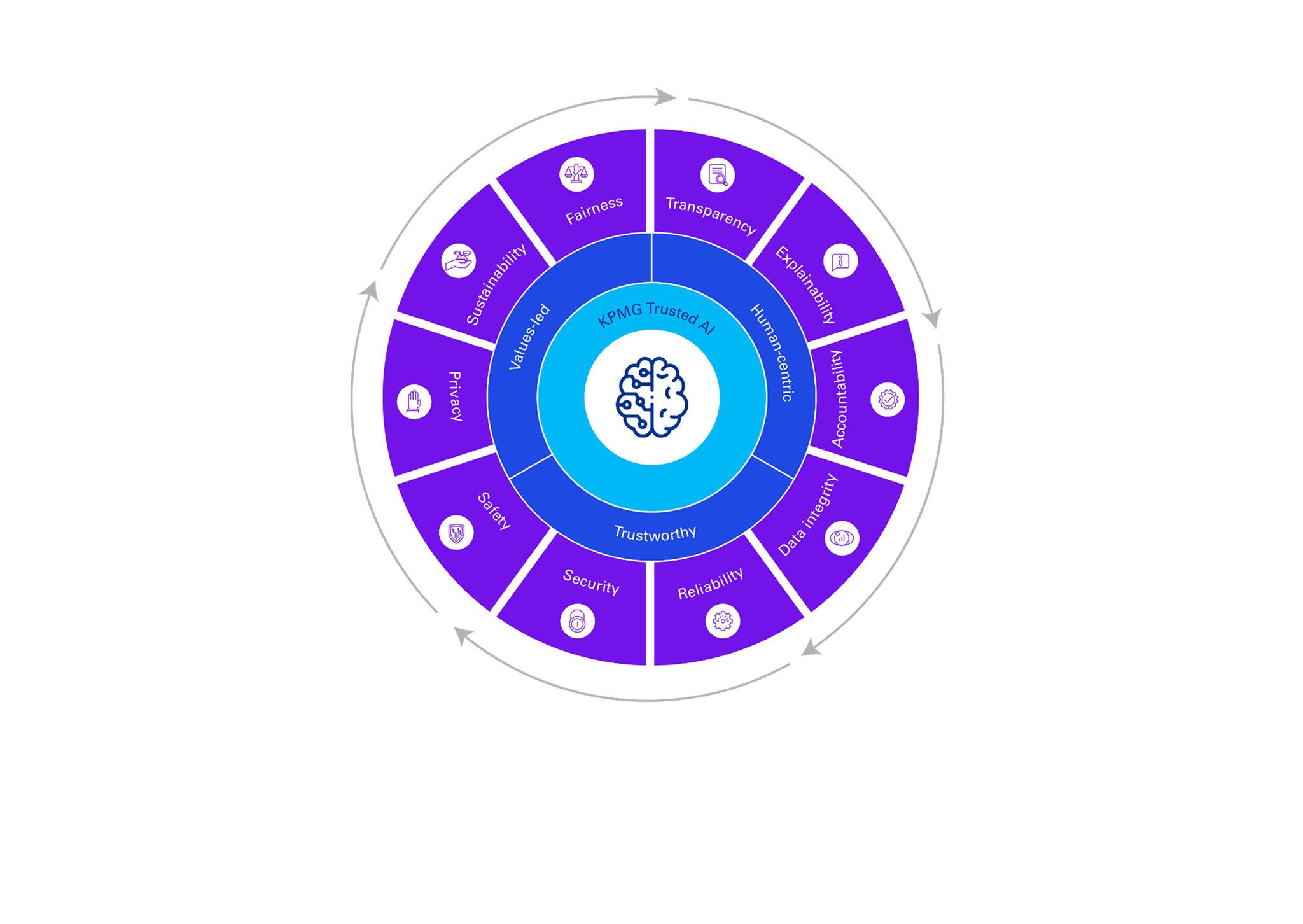A company’s AI portfolio and the impending EU AI legislation require a robust AI governance.
What's the risk of not having a clean AI Governance in place?
In light of the ever-evolving AI landscape and the forthcoming EU AI law, it is crucial to establish a sound and robust AI governance to address the market demands for trust, explainability and fairness. Not having an AI governance in place can have serious consequences.
Introduction
It is evident that the AI trend has not only persisted but flourished with unparalleled speed. Over the past year, artificial intelligence has become a pervasive force, disrupting industries and reshaping the way we live and work. The relentless innovation in machine learning, natural language processing, computer vision and generative AI (e.g. ChatGPT) has propelled AI into new areas, from healthcare and finance to entertainment and autonomous vehicles. Organizations across the globe are increasingly harnessing the power of AI to enhance efficiency, optimize decision-making and unlock unprecedented insights from vast amounts of data.
This is why companies are eagerly experimenting with AI to revolutionize their operations and gain a competitive edge. This past year has seen a surge in AI experimentation has surged. Organizations are exploring a wide range of applications, from automating routine tasks and streamlining workflows to personalizing customer experiences. This experimentation extends beyond the traditional tech giants, as organizations of all sizes and across diverse industries embrace the potential of AI to drive efficiency and innovation. As companies navigate this transformative journey, the experimentation with AI is a testament to the evolving nature of technology and its profound impact on reshaping the business landscape.
As we look ahead, the booming AI trend promises to redefine industries, foster groundbreaking discoveries and continue its transformative impact on society.
As a result, the EU AI Act has emerged as a pivotal regulatory development in the field of artificial intelligence. Introduced by the European Union, this landmark legislation aims to establish a comprehensive framework for the ethical and responsible use of AI technologies. The EU AI Act outlines strict guidelines for high-risk AI applications, emphasizing transparency, accountability and user protection. It addresses concerns related to fundamental rights and safeguards against potential biases in AI systems. The legislation sets a precedent for global AI governance by encouraging innovation while prioritizing human-centric values. It is set to become applicable in 2024.
AI Governance
As outlined above, effective AI Governance will be critical to addressing all risks and upcoming regulatory requirements. An effective AI governance provides a structured framework for overseeing the development, deployment and use of artificial intelligence technologies. The benefits of AI governance are many and varied. It is absolutely vital for ensuring responsible and ethical AI practices. Conversely, the lack of a robust and clean AI governance framework can lead to several significant threats, both at the individual and societal levels. Some key threats from the lack of a proper AI governance include:
without a proper AI governance, there is an increased risk of ethical issues such as bias, discrimination and unfair treatment within AI systems. This lack of oversight may result in unintended consequences and reinforce societal inequalities.
2. Privacy risks:
AI often involves the processing of vast amounts of personal data. Without governance, there is a higher likelihood of inadequate data protection measures, potentially leading to privacy breaches and unauthorized access to sensitive information.
3. Transparency issues:
transparency is key to understanding how AI systems make decisions. Without governance, developers may not be compelled to disclose information about algorithms, making it difficult to assess and address issues related to accountability and trust.
4. Inconsistent standards:
the lack of standardized practices can result in a fragmented landscape where different organizations adopt varying approaches to AI development. This lack of consistency prevents interoperability and makes it difficult to establish universal ethical norms and standards across the organization.
5. Regulatory gaps:
in the absence of AI governance, regulatory frameworks may be insufficient or nonexistent. This creates a vacuum where AI technologies can be deployed without adequate oversight, potentially leading to misuse or abuse
6. Public mistrust:
concerns about the ethical implications and potential risks associated with AI can erode public trust. Lack of governance contributes to uncertainty and skepticism, hindering the widespread adoption of AI technologies.
7. Missed opportunities for innovation:
while governance is crucial for Trusted AI development, an overly restrictive or unclear framework may hamper innovation. Striking the right balance is essential to encourage technological advancements while minimizing risks.
8. Limited accountability:
without clear governance structures, it becomes challenging to assign responsibility when AI systems fail or lead to negative consequences. Establishing accountability is essential for addressing issues and improving AI systems over time.
In summary, the lack of AI governance can result in a range of ethical, legal and societal challenges. To harness the benefits of AI while minimizing risks, it is vital to implement robust governance frameworks that promote responsible development, deployment and use of artificial intelligence technologies.
How to establish AI governance
Establishing an effective AI governance involves a comprehensive approach that addresses ethical, legal and operational considerations. At KPMG we use the ‘Trusted AI Wheel’ as an approach towards an AI Governance Framework.
By using a structured approach, organizations can establish a robust AI governance framework that ensures the responsible and ethical use of artificial intelligence while promoting innovation and positive societal impact.
In a future blog post we will have a deeper dive into our Trusted AI framework to help you navigate the complexities.

